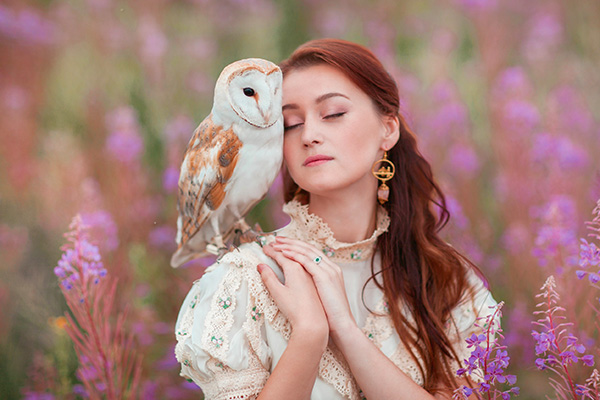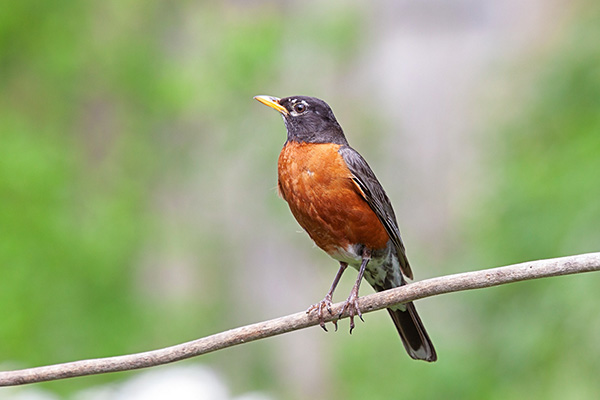shamanism
Connecting With Your Spirit Animal
 The concept of animals serving as spiritual guides and symbols for personal growth has deep roots in human culture, stretching back to ancient indigenous societies and persisting through to modern spiritual practices.
The concept of animals serving as spiritual guides and symbols for personal growth has deep roots in human culture, stretching back to ancient indigenous societies and persisting through to modern spiritual practices.
This enduring belief stems from the profound connection humans have observed and felt with the animal kingdom throughout history.
In many indigenous cultures around the world, animals traditionally hold a sacred significance and are believed to possess spiritual wisdom and powers. Many cultures also have animal symbolism in their myths, folklore, rituals, and everyday life.
For example, Native American tribes traditionally attribute personal qualities and character traits, such as strength, courage, wisdom, and cunning, to various animals, viewing them as embodiments of these virtues.
Acoording to these indigenous teachings our animal totems or spirit animals offer us guidance, protection, and insight on our spiritual journey.
We can connect with our spirit animal through meditation, dream interpretation, or rituals. By aligning with the characteristics of our chosen animal, we can gain strength, wisdom, and a deeper understanding of ourselves and our path in life.
Unstuck Your Life With A New Spiritual Practice
 One of the most transformative things we can do in life is to step out of our comfort zones and infuse our lives with new vitality. As creatures of habit, we tend to get stuck in life with repetitive routines and recurring patterns that drain our energy and stifle our personal and spiritual growth.
One of the most transformative things we can do in life is to step out of our comfort zones and infuse our lives with new vitality. As creatures of habit, we tend to get stuck in life with repetitive routines and recurring patterns that drain our energy and stifle our personal and spiritual growth.
When conventional methods fall short, exploring spiritual or esoteric practices can breathe fresh air into our lives and help us break free from the shackles of monotony.
Feeling stagnant, experiencing a lack of fulfillment, or longing for personal growth are all signs that it’s time to break free from a comfort zone, a soulless daily routine, or a recurring toxic pattern that no longer serves our highest good. These indicators often signal the need for change to invigorate or even reinvent our lives.
By adopting a new spiritual practice and delving into realms beyond the ordinary, we embark on a new journey of self-discovery and soul expansion that unlocks our hidden potential and transforms our destiny. Exploring esoteric and occult traditions offers alternative perspectives and transformative experiences that can expand our consciousness and provide profound insights. It can uncover hidden knowledge and help us tap into higher realms of consciousness that enrich our lives.
The Spiritual Symbolism Of The Circle
 The circle has a profound and universal meaning in spirituality across cultures and belief systems. It symbolizes a variety of spiritual concepts and offers insights into the interconnectedness of life, the cyclical nature of existence, and the infinite potential for growth and transformation.
The circle has a profound and universal meaning in spirituality across cultures and belief systems. It symbolizes a variety of spiritual concepts and offers insights into the interconnectedness of life, the cyclical nature of existence, and the infinite potential for growth and transformation.
The circle represents unity and oneness. It is a symbol of completeness because it has neither beginning nor end. This circular continuity reflects the eternal nature of the soul and the interconnectedness of all living beings.
In Native American spirituality, for example, the medicine wheel represents balance and harmony between all aspects of life, including the physical, emotional, mental, and spiritual. Similarly, in Hinduism, the concept of samsara refers to the continuous cycle of birth, death and rebirth, with the circle symbolizing the eternal journey of the soul.
In Christianity the circle represents eternity and sacred union. It is referenced in the Bible as the shape of heaven, and as the beginning and ending of time. For Christian couples, the unending circle of a wedding ring is also the symbolic expression of their sacred, eternal union.
The Modern Practice Of Spiritual Healing
 In a world driven by science and technology, the value of our spiritual health is rarely recognized or appreciated these days, yet it is an essential aspect of our holistic health and well-being.
In a world driven by science and technology, the value of our spiritual health is rarely recognized or appreciated these days, yet it is an essential aspect of our holistic health and well-being.
The truth is that spiritual healing has been practiced since the beginning of time to promote physical, emotional, mental and spiritual well-being. Our ancestors were much wiser in this regard. They had a holistic view of health and wellness that not only focused on the physical and mental, but also honored the spiritual or metaphysical aspects of our existence.
In ancient Egypt, for example, illness was treated as a battle between good and evil, and magical remedies were used in addition to herbal medicines. In ancient Greece, holism underpinned everything, and the soul, mind, and body were considered one.
In Traditional Chinese Medicine, a holistic system practiced for at least 23 centuries, healing is achieved by balancing the yin-yang life force energies that permeate everything in the universe. In the indigenous healing traditions of Native America, holistic health is represented by the four quadrants of the ‘medicine wheel’ or ‘sacred circle,’ namely the physical, emotional, mental, and spiritual states of being.
In Christianity, spiritual healing is documented with many references to the healing power of faith and prayer. The Bible also refers to the spiritual gift of healing, and there are several accounts of Jesus performing miraculous healings. In Hinduism, Ayurveda is a five-thousand-year-old Vedic system of medicine that seeks to restore the balance between the body, mind, and spirit.
Follow Your Passion And Truth
 In Native American tradition, human existence and well-being is based on the Medicine Wheel, also known as the Sacred Hoop, that consists of the Four Directions, Father Sky, Mother Earth, and the Spirit Tree. Together these ‘spokes’ of the wheel honor all aspects of human existence, growth, balance, and well-being: physical, emotional, mental, and spiritual.
In Native American tradition, human existence and well-being is based on the Medicine Wheel, also known as the Sacred Hoop, that consists of the Four Directions, Father Sky, Mother Earth, and the Spirit Tree. Together these ‘spokes’ of the wheel honor all aspects of human existence, growth, balance, and well-being: physical, emotional, mental, and spiritual.
In each lifetime, we are destined to achieve progress in one or more of these areas until, finally, after many incarnations, all the ‘spokes’ of our wheel are complete – all the way from the inner hub to the outer rim. At that point, we have completed our various missions through many incarnations in a myriad of schoolrooms, and we finally achieve ascended mastery.
When all our spokes are complete, we leave this dense, earthly dimension and arrive at the highest plane of existence, the realm of the Great Spirit, traditionally known as the ‘Hunting Grounds of the Ancestors,’ and since the arrival of Christianity, as ‘Heaven.’
In this state we never need to descend again, and will remain infinitely in the higher dimension. We are liberated from the endless cycle of rebirth and reach a new level of consciousness and enlightened existence, known as nirvana in Buddhism, moksha in Hindusim, and eternal life in Christianity.
As a result, from a spiritual stand-point, we are offered a smorgasbord of options and choices that we may need for our particular journey in this lifetime. The enthusiasm and passion we feel when we are guided to a particular path is spirit directing us toward the ‘curriculum’ we need to complete in order to achieve our ultimate goal of transcendence in one or more spokes of our wheel.
The Robin Outside My Window
 Birdwatching has become a favorite pastime for me over the last year or two. This morning, I noticed a robin building a nest on one of the air conditioning units on a neighbor’s deck, directly opposite my window.
Birdwatching has become a favorite pastime for me over the last year or two. This morning, I noticed a robin building a nest on one of the air conditioning units on a neighbor’s deck, directly opposite my window.
I was overjoyed! We’ve had very dry weather here in my state since mid-spring, causing robins to struggle finding nesting materials.
Some years ago, I found a newborn chick on a sidewalk while out for a walk. I could not tell for sure what species of bird it was, but it looked like it might be an American robin. I found no nest nearby to put it back into and had no idea what to do with it, but take it home. Sadly, it did not survive.
Since then, I’ve had some ‘robin guilt’ and wished I could have done more to save it. I suspect this stems from another robin incident, when I was growing up. Back then I also tried to care for older fledglings that ultimately didn’t make it. Should I have let nature take its course, instead of trying to take things into my own hands?
Last fall, after the breeding season ended, I purchased some mealworms and placed them by the forested ridge at the end of the complex where I live. The hungry robins were very appreciative, especially after the first frost. It warmed my heart! I plan to continue helping the robins around my apartment complex as the drought continues.
The deeper truth is that robins always remind me of my father. The Latin name for the American robin is turdus migratorius, because it is a migratory songbird that is free-roaming and very sensitive to environmental conditions. However, because they are highly adaptable, their migratory habits tend to be sporadic, even random.
